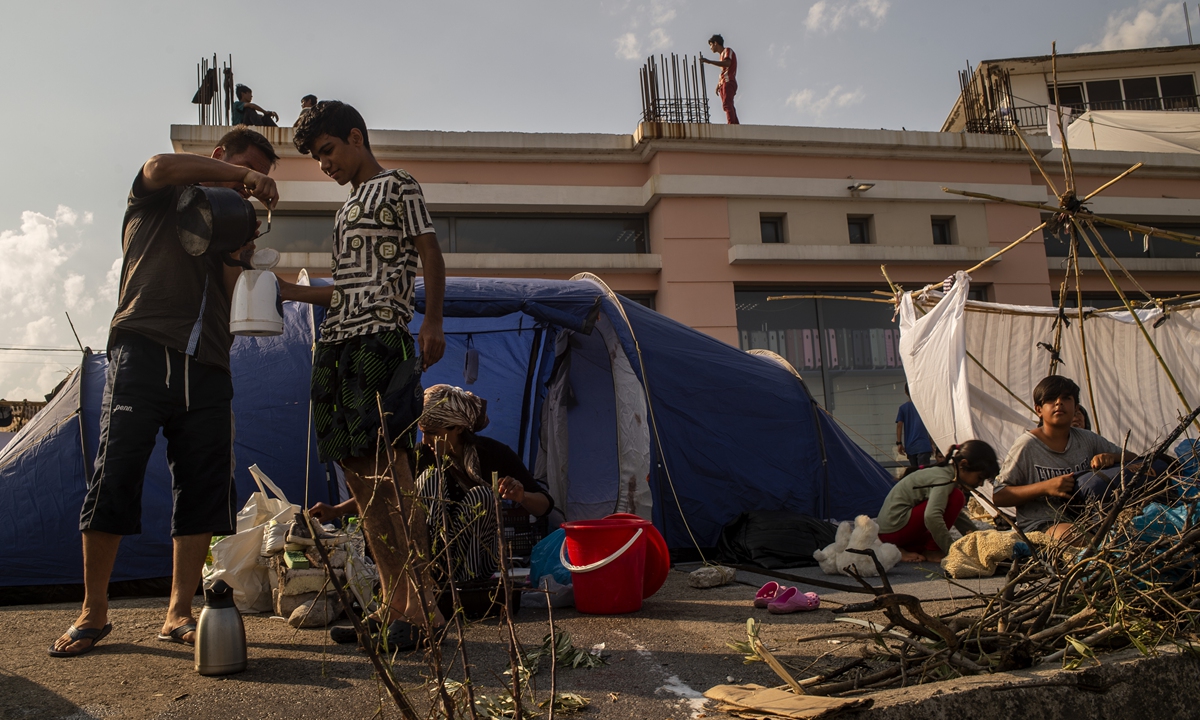Over 80m people displaced, a ‘bleak milestone’: UN
Source: AFP Published: 2020/12/9 16:58:40

Migrants prepare tea near a new makeshift camp on the island of Lesbos, Greece on Tuesday. Roughly 800 of the thousands of asylum seekers who fled a fire that destroyed Europe's biggest migrant camp have been housed at a temporary site on the island of Lesbos, Greece's migration ministry said. Photo: AFP
Despite calls for cease-fires and compassion amid the COVID-19 pandemic, violence and persecution have continued to force people from their homes, with record numbers now displaced, the UN said Wednesday.At the end of 2019, 79.5 million people were living uprooted and displaced, including nearly 30 million refugees - more than 1 percent of the world's population.
And the UN refugee agency said preliminary figures showed more people had been forced to flee in 2020, pushing the number past 80 million.
"We are now surpassing another bleak milestone that will continue to grow unless world leaders stop wars," UNHCR chief Filippo Grandi said in a statement.
UN Secretary-General Antonio Guterres called in March for a global cease-fire while the world fights the pandemic, which has now killed more than 1.5 million people.
But while some factions heeded the call, UNHCR said preliminary figures through the first half of 2020 showed that violence in Syria, the Democratic Republic of the Congo, Mozambique, Somalia and Yemen drove fresh displacement.
Africa's central Sahel region also saw significant new displacement due to brutal violence, including rape and executions, UNHCR said.
"With forced displacement doubling in the last decade, the international community is failing to safeguard peace," Grandi lamented.
The UN agency pointed out that instead of calming conflict, the coronavirus crisis had "disrupted every aspect of human life and severely worsened existing challenges for the forcibly displaced and stateless."
It pointed out that some of the measures to curb the spread of COVID-19 had made it more difficult for refugees to reach safety.
At the peak of the first wave of transmission back in April, for instance, 168 countries fully or partially closed their borders, including 90 that made no exception for people seeking asylum.
AFP
Posted in: CROSS-BORDERS